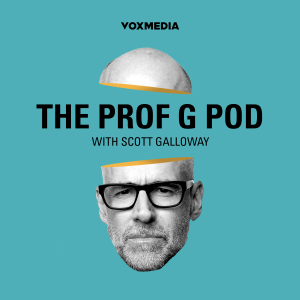

The central argument of "People Follow You" is that effective leadership is fundamentally about building strong, trusting relationships with people. Blount emphasizes that people are not motivated by the leader's reasons, but their own, and that leaders must prioritize their people's needs and development to foster a team that willingly follows and delivers exceptional results. The book advocates for a shift from a traditional "managing" mindset to one of service, empathy, and genuine connection.
Key Ideas and Facts:
1. The Primacy of Relationships in Leadership:
- The book opens with endorsements highlighting the importance of relationships. Sam Richter states, "Your relationship with your employees is the key pivot point that makes or breaks your company's development." Tony Jeary adds, "All good leadership is personal... Jeb Blount shows you how to become a better manager so you can build a team that delivers success."
- Blount emphasizes that a focused and capably led workforce produces better outcomes, as highlighted in the Foreword.
- The book posits that the core of leadership lies in understanding and acting upon a set of fundamental principles.
2. The Shift from Managing to Leading (and Coaching):
- The anecdote about the sales contest and the overwhelmed assistant manager illustrates the difference between simply having a title and truly leading a team.
- Blount distinguishes effective leaders by their ability to consistently get others to perform at high levels, identifying five core behavior patterns that are explored throughout the book.
3. Understanding and Leveraging Individual Motivation:
- Leadership Principle #5, "People Do Things for Their Reasons, Not Yours," is a cornerstone of the book. Blount critiques the over-reliance on generic motivation tactics and argues that leaders must understand what truly drives each individual on their team.
- The story of David, the underperforming sales rep, exemplifies this principle. By asking David "David, what do you want?" and helping him connect his personal goals with his professional performance, Blount unlocked his potential. He concludes, "Your people do things for their reasons, not yours."
- This experience led Blount to realize the principle: "When you help enough people get what they want, you will get what you want."
4. The Importance of Self-Awareness and Adapting Your Style:
- Leadership Principle #7, "You Are Not Normal," highlights that leaders are often highly driven individuals who need to recognize that their team members may have different motivations and priorities. "People are more willing to follow you when you interact with them based on who they are, not who you are. The most effective leaders are masters at this."
- The concept of "flexing your style" is introduced, emphasizing the need to adjust your approach to make others more comfortable.
- Personality assessments are recommended as tools for improving self-awareness and interpersonal relationships.
5. Putting People First and Servant Leadership:
- The story of Dane Scism, CEO of Cellular Sales, powerfully illustrates the "Put People First" principle. Scism's philosophy is that "when you put your people first they will put you first."
- Blount quotes Robert Greenleaf, founder of the Servant Leadership movement, stating that "a leader's primary responsibility is to help his people grow, develop, and reach their goals."
- The book argues that leaders who serve their people and give power away actually become more powerful.
6. Character Over Competence:
- Blount cites Tim Irwin's book "Derailed," emphasizing that "character trumps competence." While competence is essential, a leader's character ultimately has a greater impact.
7. Likeability and Respect:
- While acknowledging that leaders won't always be liked when coaching for growth, Blount stresses the importance of "qualities that bring about a favorable regard."
- The anecdote about Bob, the classified manager, illustrates how a demanding but caring and respectful leader can earn the deep respect and dedication of their team. "He was the first boss I ever had who put himself in my shoes. You could tell that he really liked his people."
- Basic politeness and respect are presented as fundamental for effective leadership and building likeability. "Rude, impolite leaders are not likeable. As a leader, failure to adhere to basic manners and rules of etiquette will damage your career and your income."
8. Building Confidence (in Yourself and Others):
- Confidence is described as being driven by self-image, self-esteem, attitude, experience, knowledge, and skills.
- Henry Ford's quote, "Whether you think you can or you think you can’t, you are right," underscores the power of belief in oneself.
- The book emphasizes the importance of positive self-talk and overcoming fear to build confidence. "Courage is doing something you fear... It was okay to feel afraid, but it was just not okay to allow fear to hold you back."
- Investing in one's spirit and belief system is also highlighted as crucial for building confidence and influencing others positively.
9. Authenticity:
- Pretending to be someone you are not stems from insecurity and undermines trust. "Insecurity and lack of self-confidence are at the heart of a lack of authenticity."
- People are intuitive and can sense when someone is being fake, which damages trustworthiness and the ability to connect.
10. The Power of Smiling and Maintaining a Positive Demeanor:
- Smiling is presented as a universal language that attracts others. "Smile and have Fun."
- Leaders are always being watched ("Never Forget That You Are Always on Stage"), and their demeanor significantly impacts how they are perceived. Negative expressions can create anxiety and misinterpretations among team members.
11. Connecting vs. Rapport:
- Blount distinguishes between superficial rapport-building techniques and genuine connection. He argues that "The most insatiable human desire, our deepest craving, the one thing we want more than anything else, is to feel valued, appreciated, and important."
- The key to connecting is making others feel important, primarily through listening. "Quite simply, the more you listen, the more connected others will feel to you. When you listen, you make people feel important, respected, and heard."
12. The Importance of Listening:
- Active and deep listening is presented as crucial for building connections and trust. "The more you listen to other people, the more they will trust you."
- Blount emphasizes giving undivided attention, controlling self-centered thoughts, and overcoming the urge to talk.
- Techniques for effective listening include eye contact, listening deeply (engaging ears, eyes, and emotions), and keeping the other person talking through supportive phrases and thoughtful questions.
- The importance of pausing before responding is highlighted to ensure full comprehension and prevent interrupting.
13. Strategic Use of Communication Tools:
- Messaging tools are best for conveying facts and arranging meetings.
- It is crucial to pause and consider the tone before sending messages, especially when emotions are high.
- For conveying negative emotions, criticism, or clarifying misunderstandings, picking up the phone for a real-time conversation is recommended.
14. Providing Clarity and Direction:
- Leaders must provide a clear vision and plan so that their people know where they are going and how to get there. The "hitting the wrong target" analogy powerfully illustrates the frustration of not having clear goals and feedback. "If the ultimate goal of leadership is to help people win, doesn't it make sense that as the leader you have a responsibility to ensure that they know what winning is?"
15. The Power of Questions and Coaching:
- Effective leaders ask many questions to understand their people and their challenges.
- Chris Dods' questioning style is presented as a model for uncovering underlying issues.
- Worry questions ("What do you worry about?") are suggested as a powerful tool for getting people to open up.
- The anecdote about the inadequate cell phone allowance reveals how asking questions can uncover unexpected roadblocks hindering performance. "Though from the outside looking in, it may appear that people are doing illogical things, no one really wakes up in the morning and looks into the bathroom mirror and says, ‘You know, today I think I'm going to sabotage my job by doing something really stupid.’ People just don't do illogical things on purpose. There usually is another reason."
16. Building Trust as a Foundation:
- Trust is defined as "Firm reliance on the integrity, ability, or character of a person or thing."
- Blount emphasizes that trust is personal, emotional, and earned over time through consistent evidence of trustworthiness.
- Steven Covey's "Emotional Bank Account" metaphor is used to illustrate how trust is built through regular "deposits" (keeping commitments, showing appreciation) and eroded by "withdrawals" (breaking promises, being inconsistent).
- Leaders are always "on stage," and their every action is scrutinized as evidence of their trustworthiness. "As a leader, you are always on stage, and it is essential that you control the behaviors you allow others to observe."
- Small breaches of trust can accumulate and significantly damage relationships.
17. The Importance of Responsiveness, Apologies, and Admitting Mistakes:
- Timely responses to employee concerns are crucial for building trust.
- Sincere apologies and admitting when you are wrong demonstrate character and can strengthen relationships. The anecdote about apologizing to Jenny illustrates the positive impact of taking responsibility.
18. Anchoring Relationships with Positive Experiences:
- The "Law of Reciprocity" can be used to anchor relationships by creating positive emotional experiences for your people.
- Shirley's practice of personally delivering paychecks with handwritten notes exemplifies this, creating lasting positive memories and loyalty.
19. Recognition and Appreciation:
- Consistent recognition, even for small achievements, is a powerful motivator. "The easiest ways to motivate people for small achievements is to catch them doing something right and recognize them for it."
- Getting creative with recognition can make it more impactful and memorable. The story of the recognition dinner on the Buccaneers' pirate ship is an example.
- Coach Bear Bryant's act of sending a thank-you picture demonstrates the long-lasting impact of simple, thoughtful gestures.
20. Selflessness and Legacy:
- True leadership is about serving others and putting their needs first. "Leadership is about serving others. It is about putting the needs of your people before your own."
- Developing people and helping them succeed should be a primary focus. Andrea's experience of being given a prominent opportunity by her boss highlights the impact of selfless leadership.
- Every leader leaves a legacy, and shaping a positive one requires vigilance and investment in your people. The book concludes by reiterating that "PEOPLE FOLLOW YOU."
Key Quotes:
- "Your relationship with your employees is the key pivot point that makes or breaks your company's development." - Sam Richter
- "All good leadership is personal." - Tony Jeary
- "Not subprime mortgages, but subprime leadership." - Bill George
- "People do things for their reasons, not yours." - Jeb Blount
- "You are not normal." - Jeb Blount
- "When you put your people first they will put you first." - Dane Scism
- "A leader's primary responsibility is to help his people grow, develop, and reach their goals." - Robert Greenleaf
- ". . . the glaring truth is that a leader is only as good as the character of the leader." - Tim Irwin
- "The most insatiable human desire, our deepest craving, the one thing we want more than anything else, is to feel valued, appreciated, and important." - Jeb Blount
- "Quite simply, the more you listen, the more connected others will feel to you." - Jeb Blount
- "If the ultimate goal of leadership is to help people win, doesn't it make sense that as the leader you have a responsibility to ensure that they know what winning is?" - Jeb Blount
- "PEOPLE FOLLOW YOU." - Jeb Blount
Implications for Leaders:
This book provides a practical framework for leaders at all levels to focus on building genuine connections with their people. It challenges traditional management approaches and advocates for a leadership style rooted in empathy, service, and a deep understanding of individual motivations. By prioritizing the needs and development of their team members, leaders can cultivate trust, loyalty, and ultimately drive better results. The principles outlined in "People Follow You" emphasize the importance of continuous self-awareness, effective communication, and a commitment to consistently demonstrating respect and integrity.
RYT Podcast is a passion product of Tyler Smith, an EOS Implementer (more at IssueSolving.com). All Podcasts are derivative works created by AI from publicly available sources. Copyright 2025 All Rights Reserved.More Episodes
All Episodes>>Create Your Podcast In Minutes
- Full-featured podcast site
- Unlimited storage and bandwidth
- Comprehensive podcast stats
- Distribute to Apple Podcasts, Spotify, and more
- Make money with your podcast











